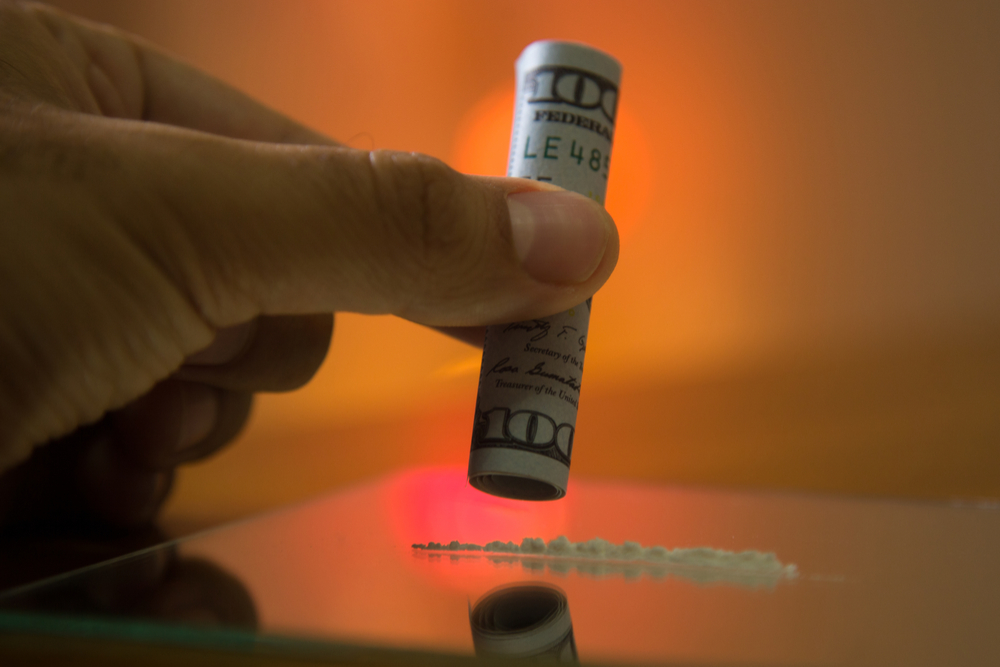
To aging heads of state and conservative bankers, bitcoin is a tool for criminality. To those in the know, nothing could be further from the truth; most bitcoin transactions are for legitimate purposes. Proving this has always been difficult, but a new study adds weight to this argument. Its key finding? Bitcoin hit peak criminality in 2014 and has been dropping ever since.
See also: Trump’s Federal Reserve Nominee: Cryptos “Don’t Really Matter Today”
Bitcoin: More Legitimate Than You Think
Warfare and organized crime are two of the most unsavory elements of civilized society, and yet both share one positive trait: they’re great drivers of technology. Without war, we wouldn’t have such eclectic inventions as canned food, the jerry can, the microwave, or radar. And without internet crime, much of the tech we take for granted would likely never have broken through. Encryption, Tor, privacy coins, self-destructing messaging apps and – oh yes – bitcoin, all owe their adoption to the more shadowy parts of the web.
 This assertion is borne out by a recent study from University of Sydney’s Dr Sean Foley. It found that around one third of the virtual currency’s owners have used bitcoin in connection with some form of illegal activity. The study’s author claims that 34-36 million bitcoin users, out of a total of 106 million, have illicitly sent or received bitcoin. Given that not all uses of bitcoin on darknet websites are for illegal purposes, however, the true number is likely to be lower.
This assertion is borne out by a recent study from University of Sydney’s Dr Sean Foley. It found that around one third of the virtual currency’s owners have used bitcoin in connection with some form of illegal activity. The study’s author claims that 34-36 million bitcoin users, out of a total of 106 million, have illicitly sent or received bitcoin. Given that not all uses of bitcoin on darknet websites are for illegal purposes, however, the true number is likely to be lower.
Define Illegal
One thing the study fails to clarify is what constitutes illegal use. Is buying a gram of weed with bitcoin as nefarious as buying a gun or issuing ransomware? Such philosophical questions are beyond the remit of the University of Sydney study. Besides, calculating how a pseudonymous digital currency was used over the course of millions of transactions is impossible. The blockchain can tell you where those coins went, but they can’t tell you why or for what. In fairness to Dr Foley, the author has investigated the matter in some detail, analyzing the flow of bitcoins through known illicit trade networks – think Silk Road and its string of successors. The senior lecturer, as reported in Australia’s Financial Review, detailed his methodology:
Our second approach is to exploit characteristics that can distinguish between users involved in illegal activity and those involved in legal activity using detection-controlled estimation models. For example, for each bitcoin user we are able to measure the extent to which they take actions to conceal their identity and trading records. Using these innovative tools, we are able to approximate the size of the black market economy.
There are numerous lawful reasons why an individual might take steps to conceal their identity on the web. Assuming the claim of 36 million “illicit” bitcoin users is accurate, however, what’s more fascinating is the extent to which legitimate use has superseded this. Dr Foley’s research indicates that illicit use of bitcoin peaked in 2014 and has been dropping ever since. Legitimate use, on the other hand, has been climbing sharply for the last five years and overtook illegal purposes in 2016.

The Original Trade Route to Bitcoin
When bitcoin first came along, one of the few places where the digital currency could be used was on the Silk Road marketplace. Coupled with its then-anonymous nature (blockchain explorers were still rudimentary), it was possible to buy anything with bitcoin and have it shipped to your door. Many of bitcoin’s early adopters first heard of the currency through Silk Road and first spent it there. Six years on and the deep web’s most notorious marketplace is long gone but bitcoin is booming.

Despite bitcoin’s lawful applications having long since surpassed unlawful ones, it’s still routinely cited in the same breath as criminality. When quizzed about cryptocurrency and bitcoin this week, it was telling that White House Press Secretary Sarah Sanders said the one U.S. department taking an active interest in the digital currency is Homeland Security.
Asked about cryptocurrency, the White House said they’re monitoring it. Pushed further, Sanders mentioned Homeland Security specifically. pic.twitter.com/55n3SI0NvE
— Fran Berkman (@FranBerkman) November 30, 2017
If one third of bitcoin users have used cryptocurrency to engage in some form of illegal activity, how many users of the U.S. dollar have done the same? Given that 90% of U.S. banknotes are tainted with cocaine, there’s a strong case for arguing that bitcoin is the cleaner currency.
Which currency do you think is more synonymous with criminal activity – bitcoin or the U.S. dollar? Let us know in the comments section below.
Images courtesy of Shutterstock, Pixabay, and University of Sydney.
Need to calculate your bitcoin holdings? Check our tools section.
